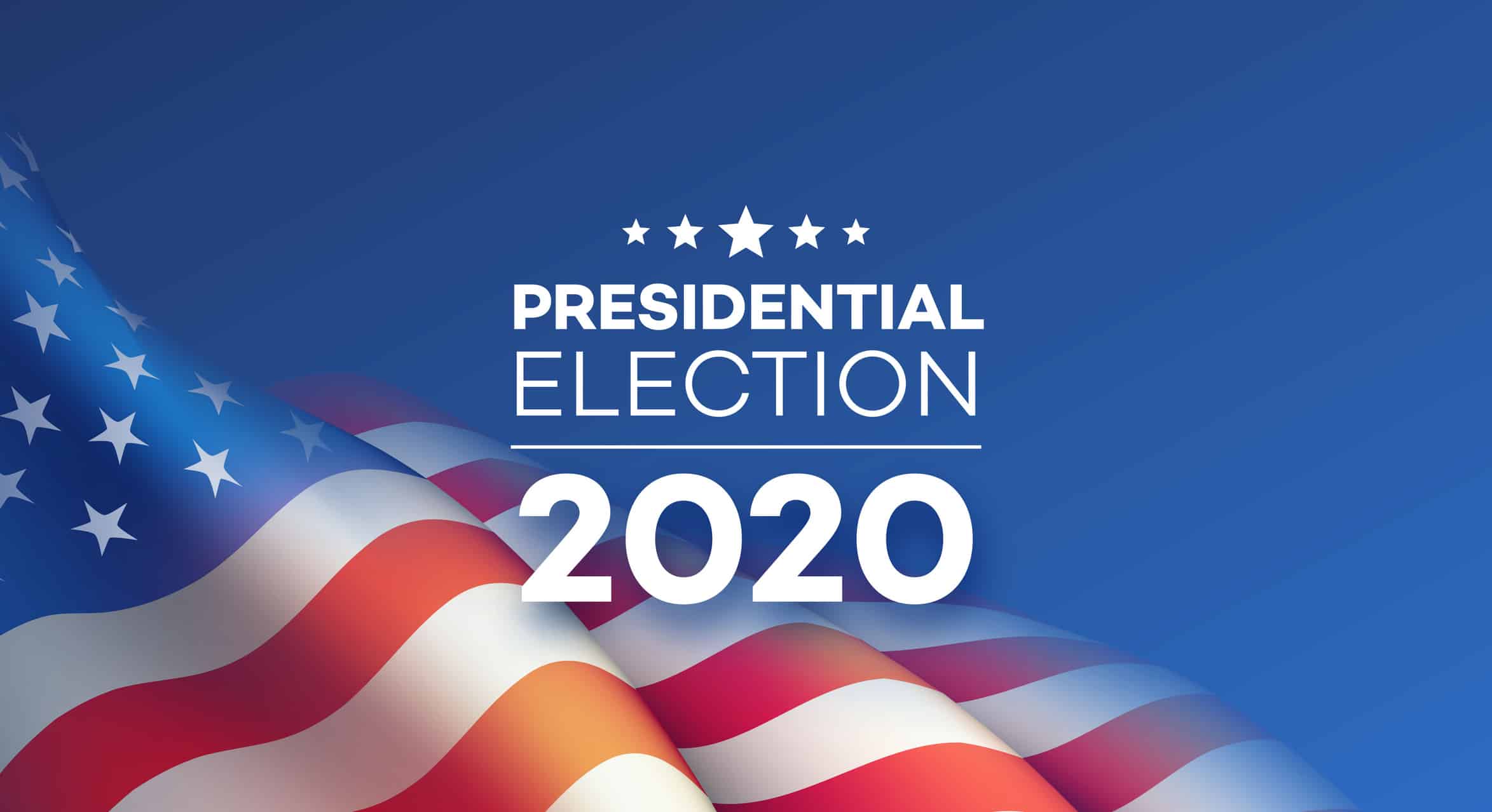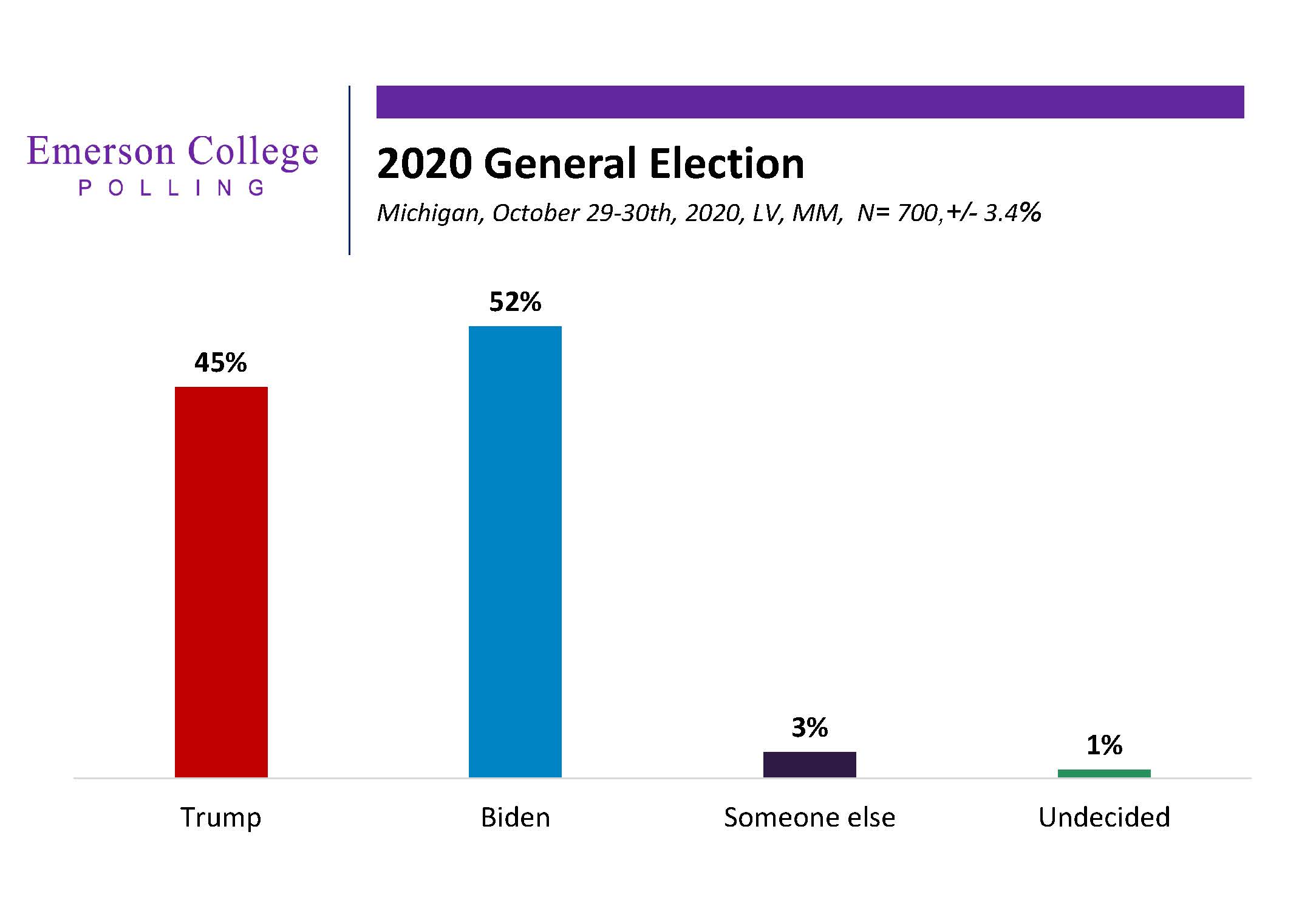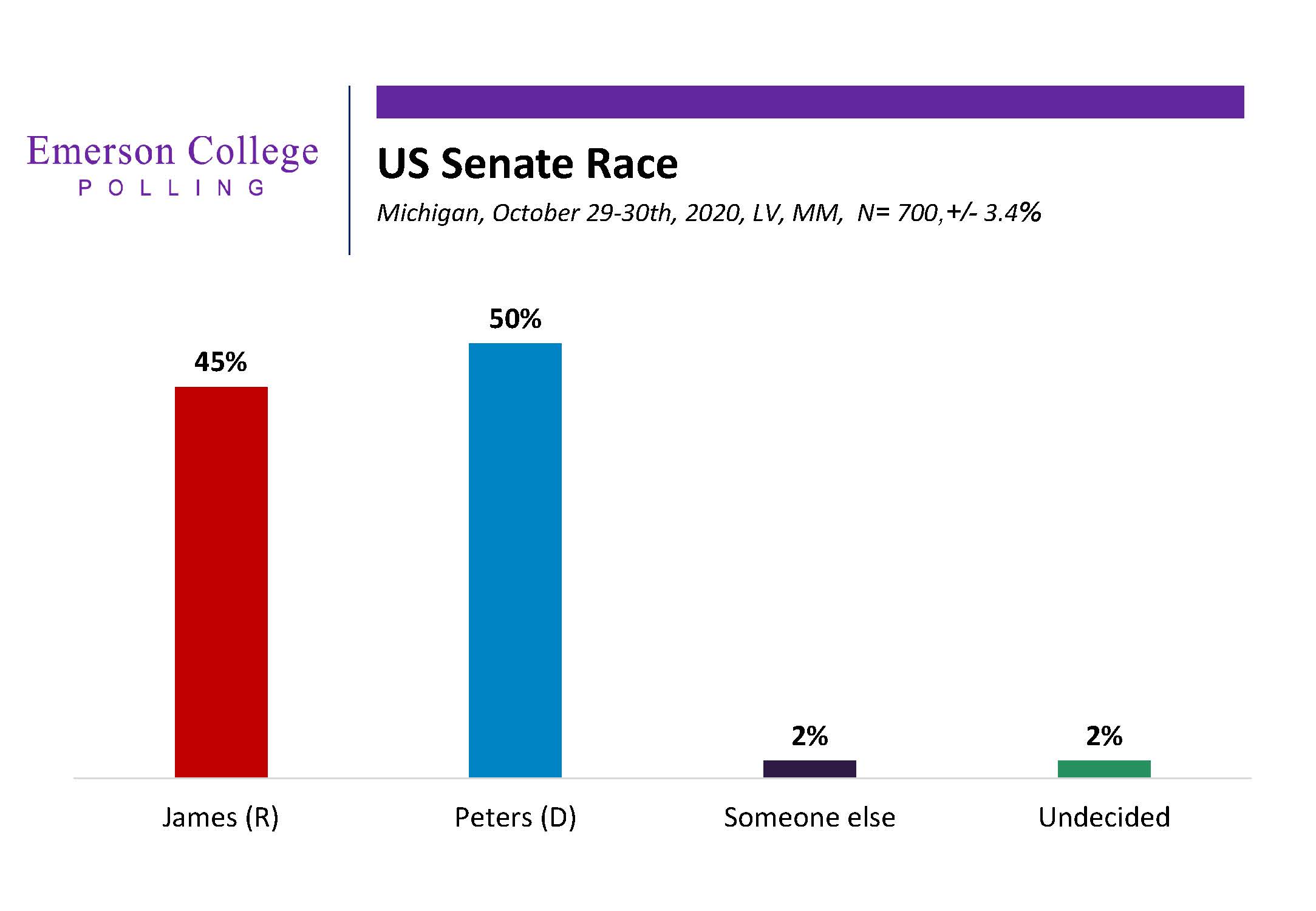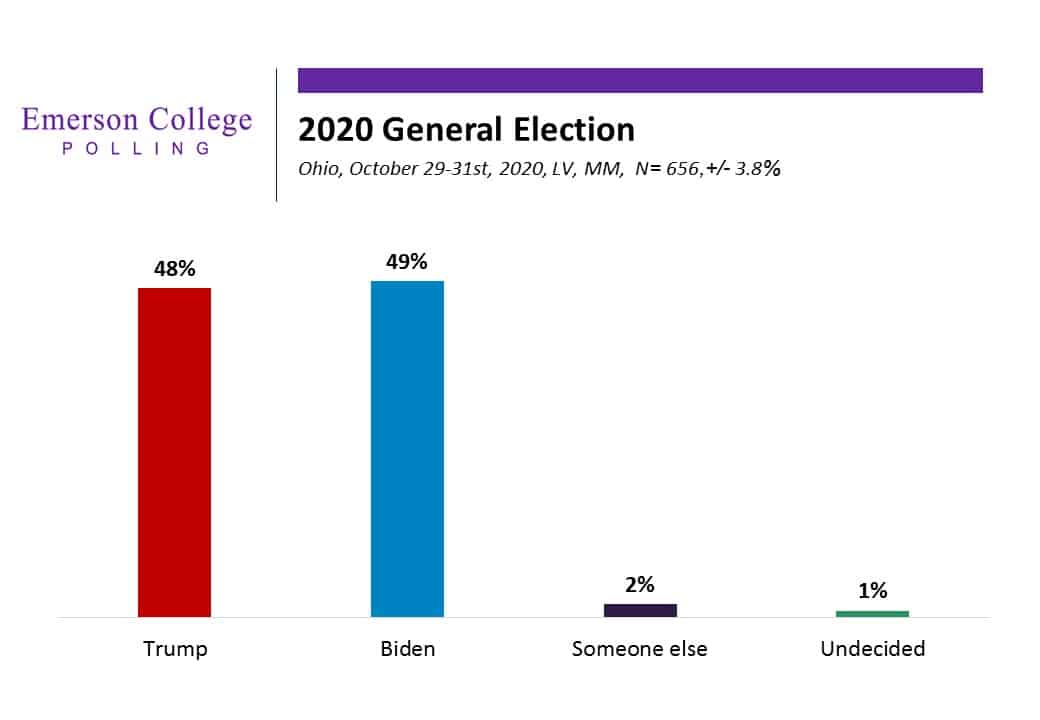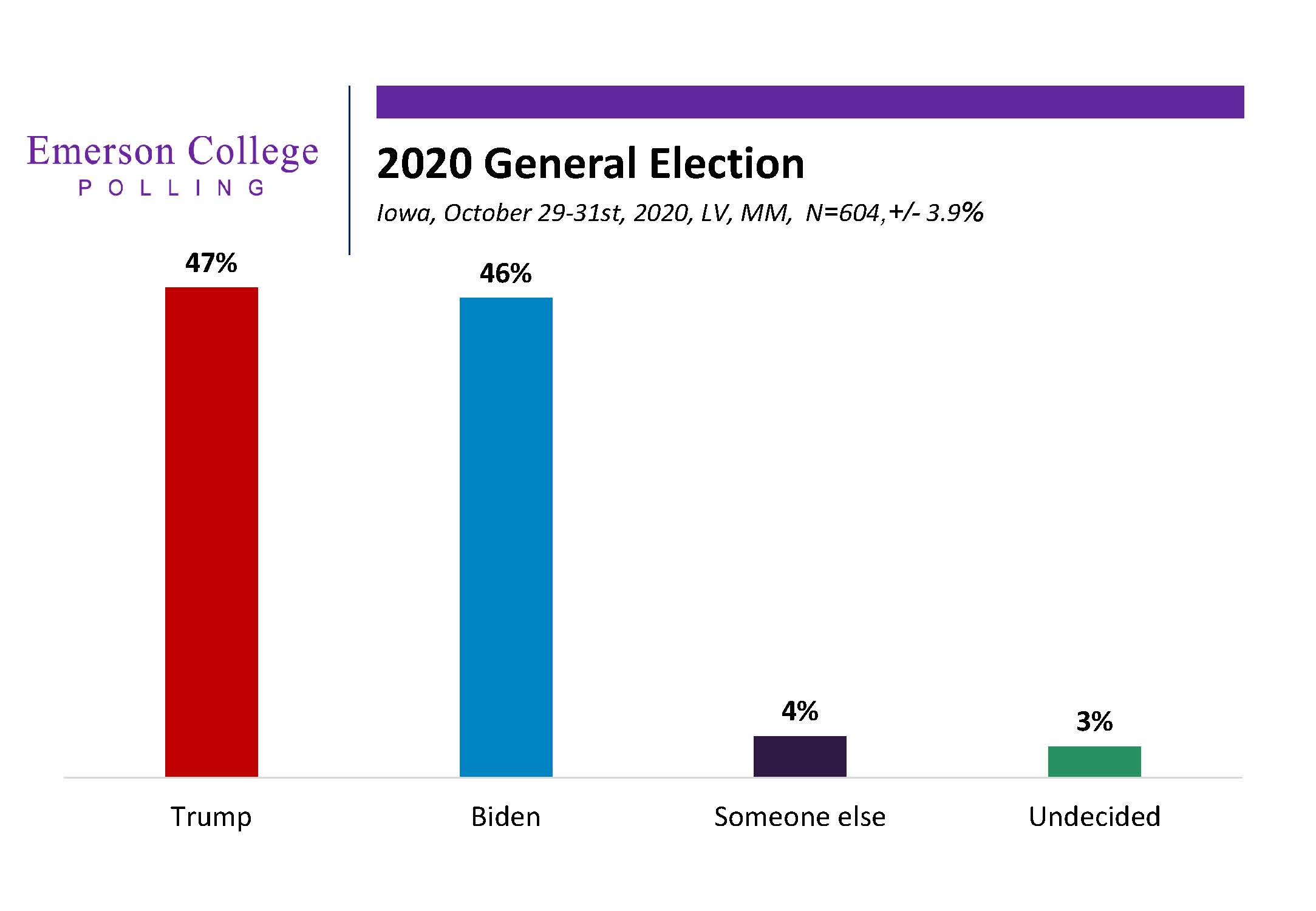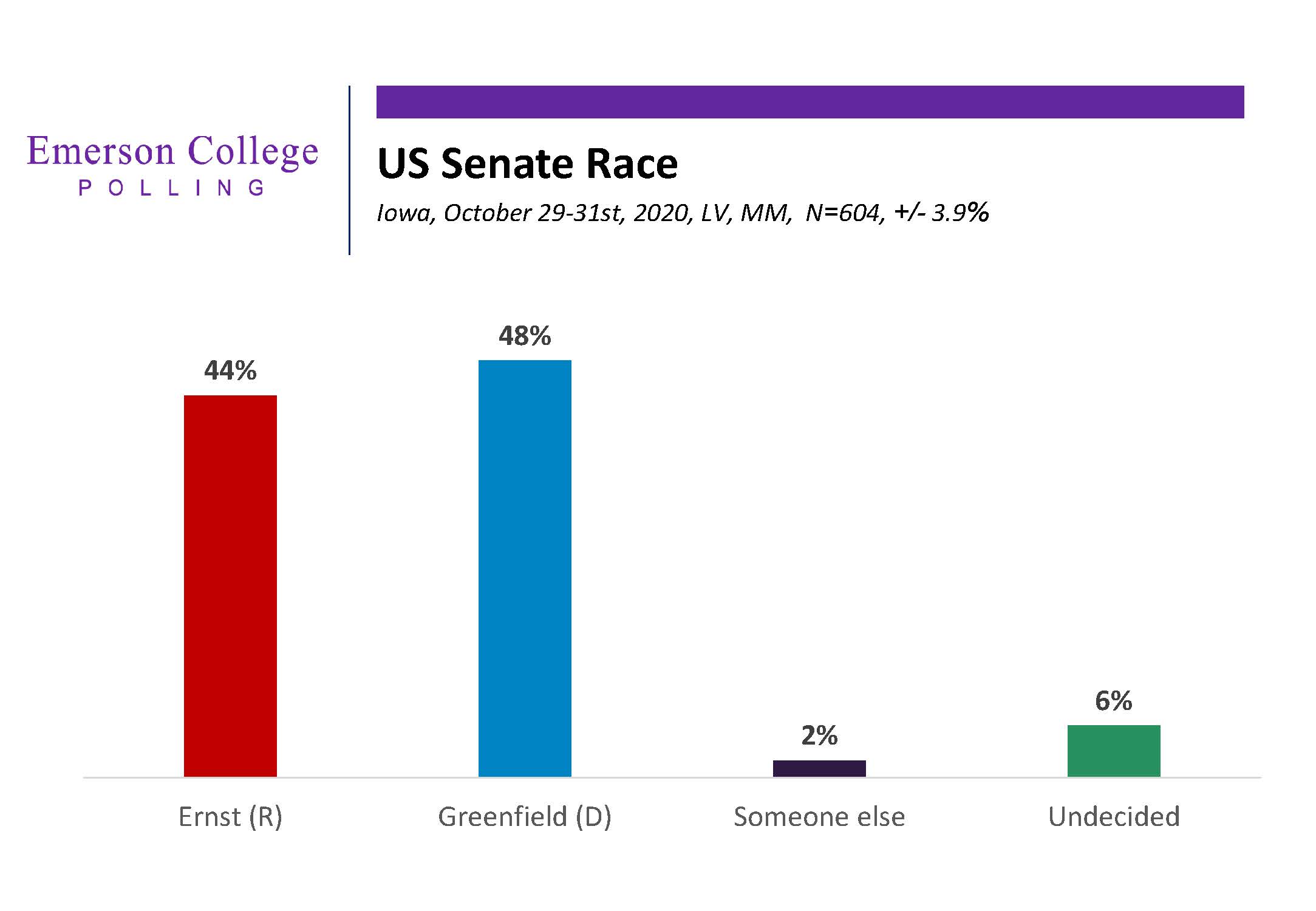The final Emerson College poll before the November 3rd election in Michigan finds the former Vice President Joe Biden leading President Donald Trump 52% to 45%. 3% of voters plan to vote for someone else and only 1% remain undecided. Since the last Emerson poll in Michigan earlier this month, Biden has held at 52% and Trump has gone up three-points, from 42% to 45%.
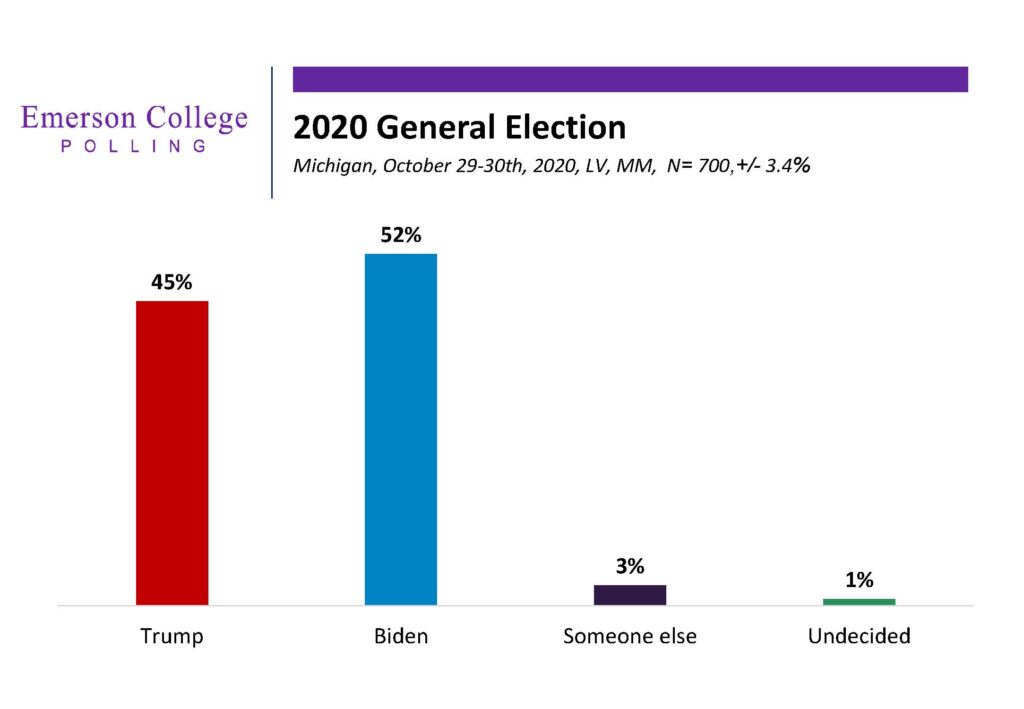
Biden is leading Trump among independent voters 59% to 32%. He also has a lead among suburban voters, 53% to 43%, and urban voters 56% to 38%. Trump has a lead among rural voters 55% to 44%.
In the US Senate race, incumbent Democratic Senator Gary Peters leads Republican challenger John James 50% to 45%. Two percent are undecided and two percent plan to vote for someone else.
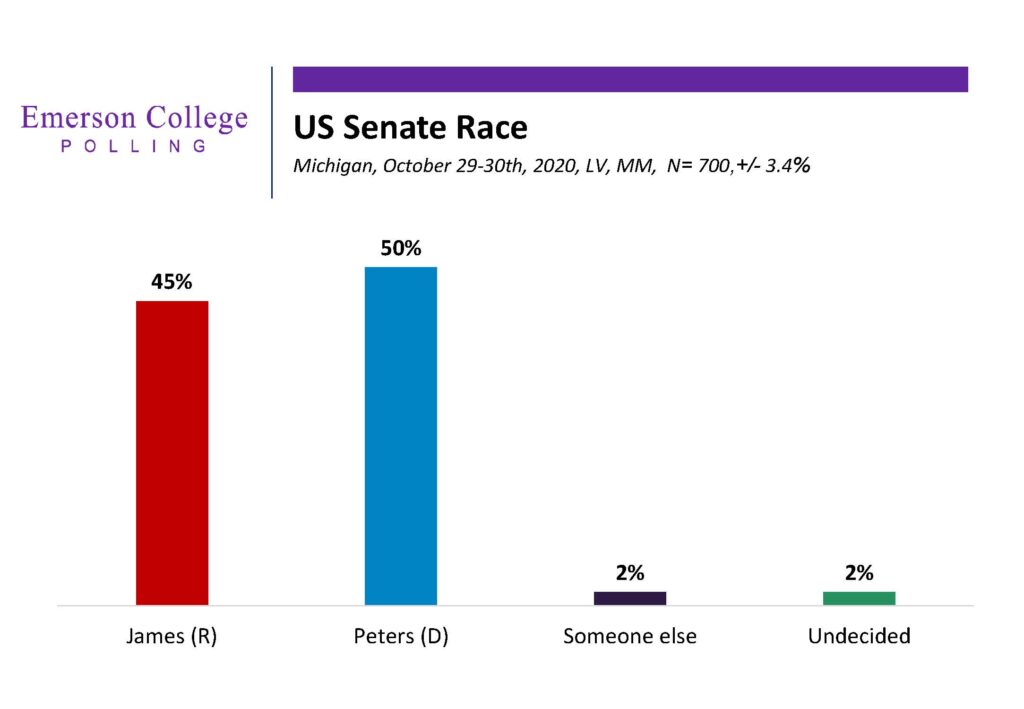
The majority (52%) of Michigan voters disapprove of the job Donald Trump is doing as president while 43% approve of the job he is doing.
Voters were asked how much of a public health threat they think coronavirus is and the majority (52%) think it is a major threat while 29% say it is a moderate threat, 15% think it is a minor threat and 5% think it is no threat at all. The majority (83%) of those voting for Biden think it is a major threat while the majority (48%) of those voting for Trump thinks coronavirus is a moderate threat and 27% think it is a minor threat.
The plurality (34%) of Michigan voters say the economy is the most important issue in deciding their vote for president, followed by COVID-19 with 21%, healthcare with 12% social justice with 11%, climate change with 6%, and the supreme court with 4%.
Among Trump voters, the majority (62%) say the economy is the most important issue.
Biden voters are more split between COVID-19 response (34%), healthcare (19%), social justice (15%), and climate change (9%).
Caller ID
The Michigan Emerson College poll was conducted October 29-31, 2020. The sample consisted of likely Democratic, Republican, and Independent voters, n=700, with a Credibility Interval (CI) similar to a poll’s margin of error (MOE) of +/- 3.4% percentage points. The data sets were weighted by gender, age, education, race and region based on 2016 voter turnout modeling. It is important to remember that subsets based on gender, age, party breakdown, ethnicity, and region carry with them higher margins of error, as the sample size is reduced. Data was collected using an Interactive Voice Response (IVR) system of landlines (n=366), SMS-to-web texts (n=161), and an online panel provided by MTurk (n=173).
Ohio 2020
The final Emerson College poll before the November 3rd election in Ohio finds the former Vice President Joe Biden leading President Donald Trump 50% to 48%. Two percent (2%) of voters plan to vote for someone else and 1% are undecided.
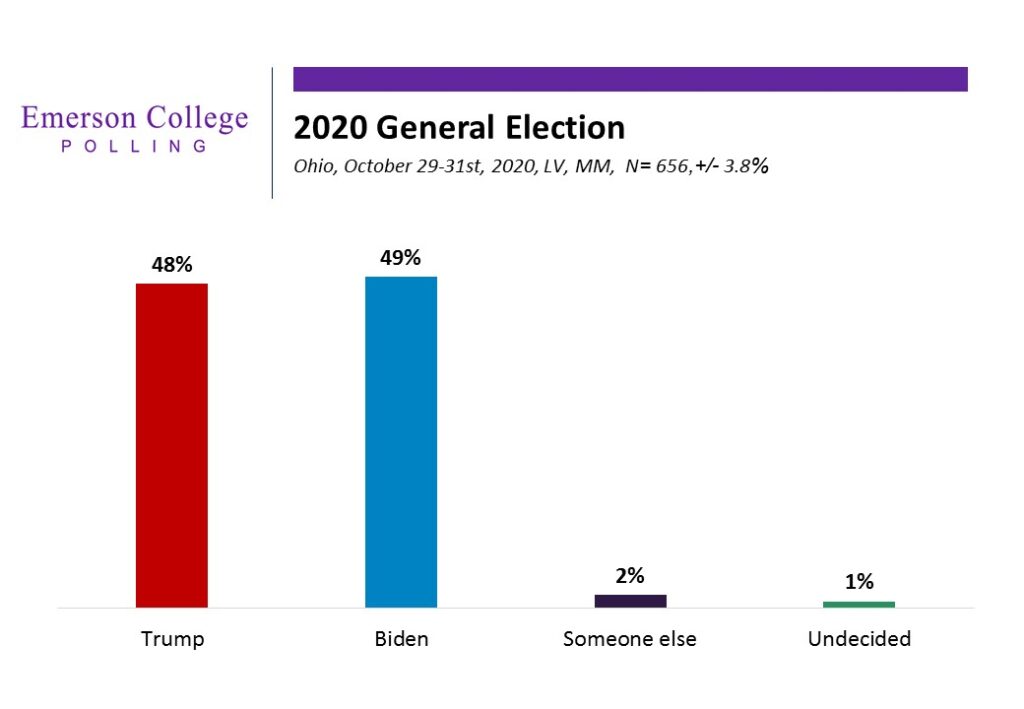
Amongst voters who consider themselves Independents, Biden is leading 55% to 39%. Biden also has a lead among suburban voters, 53% to 45%. Trump has a lead among rural voters 56% to 42%.
Voters are split on their opinion of President Trump’s job performance, with 48% approving and 48% disapproving of his job as President.
Ohio Voters were asked how much of a public health threat they think coronavirus is and the majority (51%) think it is a major threat while 29% say it is a moderate threat, 16% think it is a minor threat and 4% think it is no threat at all. The majority (82%) of those voting for Biden think it is a major threat while the plurality (43%) of those voting for Trump believes it is a moderate threat and 30% think it is a minor threat.
The plurality (38%) of Ohio voters say the economy is the most important issue in deciding their vote for president, followed by COVID-19 response with 16%, healthcare with 10%, social justice with 11%, climate change with 6%, and the supreme court with 5%.
Among Trump voters, the majority (65%) say the economy is the most important issue.
Biden voters are split between COVID-19 response with 28%, healthcare with 18%, social justice with 18%, the economy with 13%, and climate change with 8%.
Caller ID
The Ohio Emerson College poll was conducted October 29-31, 2020. The sample consisted of likely Democratic, Republican, and Independent voters, n=656, with a Credibility Interval (CI) similar to a poll’s margin of error (MOE) of +/- 3.8 percentage points. The data sets were weighted by gender, age, education, party affiliation, race and region based on 2016 voter turnout modeling. It is important to remember that subsets based on gender, age, party breakdown, ethnicity, and region carry with them higher margins of error, as the sample size is reduced. Data was collected using an Interactive Voice Response (IVR) system of landlines (n=320), SMS-to-web texts (n=191), and an online panel provided by MTurk (n=145).
Iowa 2020
The final Emerson College poll before the November 3rd election in Iowa finds between President Donald Trump narrowly leading former Vice President Joe Biden 47% to 46%. 4% of voters plan to vote for someone else and 3% are undecided. Since an Emerson Iowa poll in October, President Trump has lost one point and Biden has stayed the same.
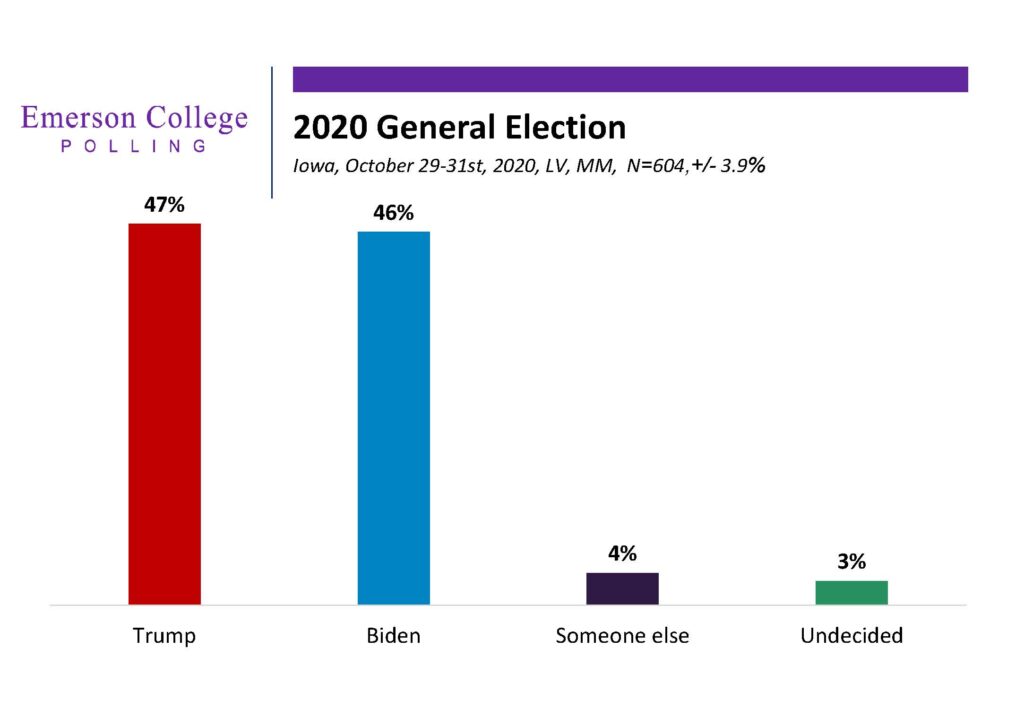
Biden has a lead among suburban voters, 62% to 34%, and urban voters 49% to 38%. Trump has a lead among rural voters, 65% to 30%. Independent voters are also breaking for Trump, 43% to 40%.
In the US Senate race, Democrat Theresa Greenfield leads incumbent Republican Joni Ernst 48% to 44%. Greenfield has increased her support by 3% since the last Emerson Iowa poll and Ernst lost has 2% of her support.
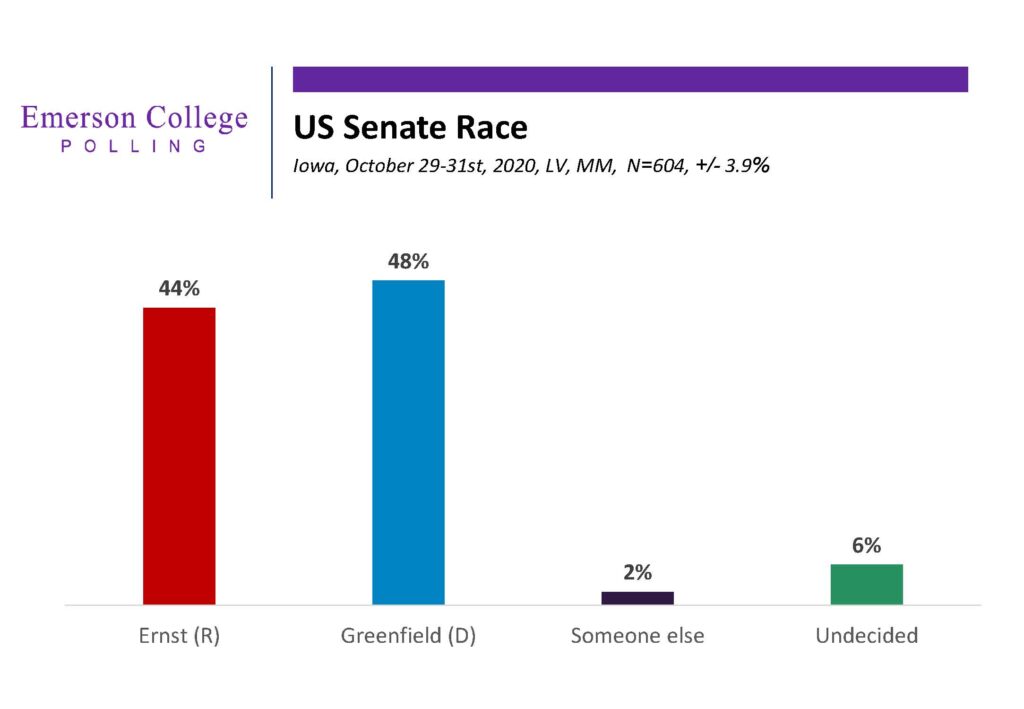
Iowa voters are split about the job Donald Trump is doing as president, 47% disapprove and 46% approve of the job he is doing as president.
Voters were asked how much of a public health threat they think coronavirus is and the majority (51%) consider it a major threat while 30% say it is a moderate threat, 13% think it is a minor threat and 7% think it is no threat at all. A strong majority (88%) of those voting for Biden think coronavirus is a major threat while the plurality (46%) of those voting for Trump thinks it is a moderate threat.
The plurality (36%) of Iowa voters say the economy is the most important issue in deciding their vote for president, followed by healthcare with 16%, COVID-19 response with 14%, social justice with 11%, climate change with 7%, and the supreme court with 3%.
Among Trump voters, the majority (65%) say the economy is the most important issue.
Biden voters are more split between COVID-19 response with 27%, healthcare with 26%, and social justice with 14%.
Caller ID
The Iowa Emerson College poll was conducted October 29-31, 2020. The sample consisted of likely Democratic, Republican, and Independent voters, n=604, with a Credibility Interval (CI) similar to a poll’s margin of error (MOE) of +/-3.9 percentage points. The data sets were weighted by gender, age, education, party registration and region based on 2016 voter turnout modeling. It is important to remember that subsets based on gender, age, party breakdown, ethnicity, and region carry with them higher margins of error, as the sample size is reduced. Data was collected using an Interactive Voice Response (IVR) system of landlines (n=352), SMS-to-web texts (n=216), and an online panel provided by MTurk (n=35).



